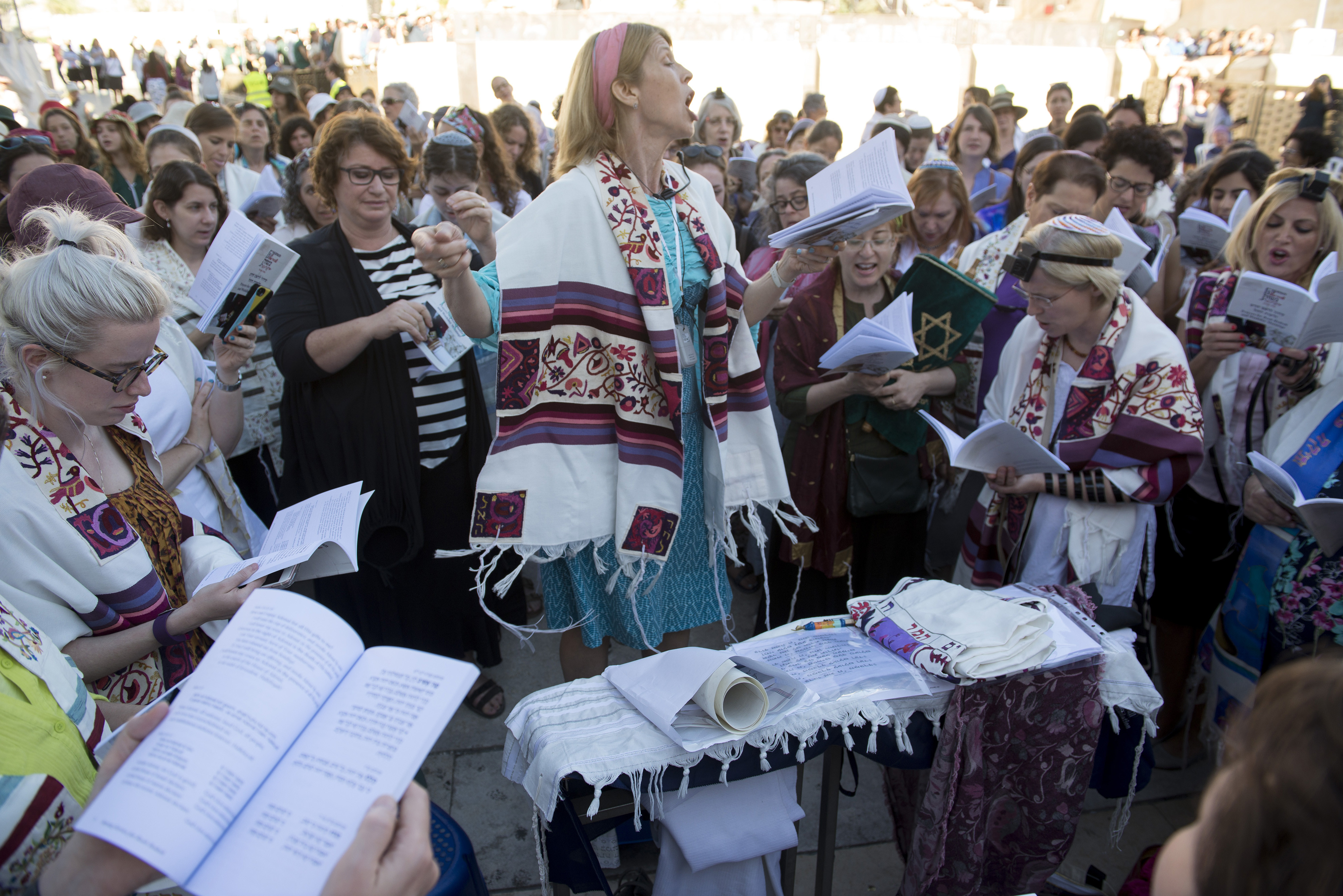In the story of Hannah, in the book of Samuel I, Hannah prays for a child as Eli, the priest calls her a drunkard. The Rabbis teach that this was the first initial form of prayer in the Bible. She is crying, her lips are moving and she is praying for the absence in her barren womb to be filled with new life. This may also be the first proof of a woman being demonized as “other” and “possessed.” Eli assumed that she must have “lost her mind” by being intoxicated.
I teach my students at Hebrew Union College, future cantors, educators and rabbis; the first prayer that we initially have comes from inside, deep within the soul or the voice of our belly. Like Hannah, we pray to be filled, to be freed and to be whole. That silent, most intimate prayer is where we find longing and truth from our own bodies. We cry out in sorrow, we rejoice in laughter and we finally sing, we SING.
After being called a drunkard, Hannah must be on the defense and then she cries out more and God hears her prayer and grants her Shmuel. This prayer of the belly is heightened when the voice can ring out in song and essentially dance. The first time I prayed out loud at the Kotel was Rosh Chodesh Kislev 5773, 2012. I wrote then how I felt liberated by this prayer group called “Women of the Wall.” Since then I prayed many services with them and many different scenarios have played themselves out at the Kotel. I never felt defensive at the Kotel because I was always praying from my belly. As a mother of three sons, I always pray for them. I pray for peace in Israel, especially from within the people of Israel. I pray for the healing of loved ones and the hunger that still haunts our world. I pray for redemption to come when all of us will look into each other’s eyes and see the other and between us know a longing for God. I pray for all of the women who are tortured, beaten, unloved, prostituted, battered and barren…and I sing out with all of my being.
Some people, like Eli the priest’s first impression of Hannah, think we are crazy, perhaps even “witches.” However, if we all sat down at a table and talked about prayer and what we pray for, we probably have similar prayers deep within our bellies. We probably just want to be accepted and ultimately loved.
I do not go the Kotel to provoke and politicize, really and truly…I go to pray. I go to pray with my voice, my God given voice at a place where I feel a holiness in my …belly-a gut feeling that does not let me go. I run to the Kotel to pray…both my silent prayer, and since praying with the Women of the Wall…my singing prayer…I sing my prayer and truly feel that this is what is good for women. Women should cry out and feel empowered by the voices around them and their prayers deep in their bellies.
The Chassidim believe that there are three stages of mourning: First we are silent and in shock, then we cry out, and finally we SING. We are not silent anymore, we may still cry, but now our prayer has reached song. We pray in song, we pray from the belly and we pray that we are all standing at the wall, at Sinai and we are one. We dance, we cry and we feel an empathy towards the other and a desire to what anthropologist Victor Turner called, “Spontaneous communitas.” This happens when we do not really know everyone around us but we all feel deeply connected…in our bellies.
On this Rosh Kodesh Kislev, and the 25th Anniversary of Women praying through song, let us pray, let us pray, let us pray. Let our kavanah, our focus be on prayer and not justification, legal battles and who is right or wrong. Come all, please and let us pray and bring forth our lights from within.



Hi, I would like to publish this on “kolech” website, will that be OK? Of course, we would give you credit for it and put a link to the blog. Thank you
yes we would be honored
thank you!